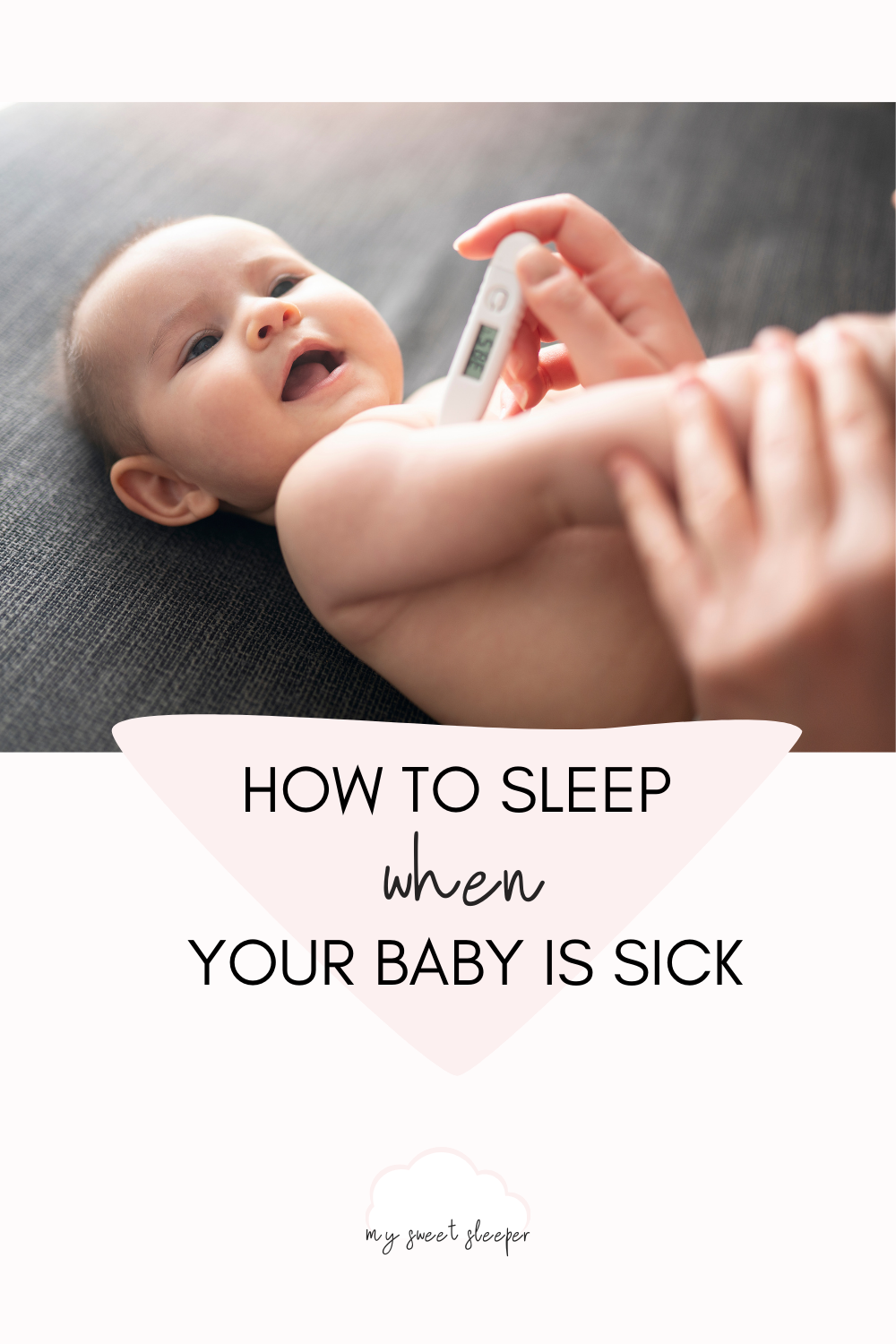How to handle sleep when your baby is sick
You’ve likely found yourself in this situation…your child has finally made progress with sleep and seems to be getting into a predictable pattern, and then - wham! They get sick.
Getting through the cold and flu season with kids can seem like a long, hard battle. We all know that having a sick baby is one of the worst feelings there is, but lack of sleep on top of sickness is even worse!
So, what is a mama to do when their good sleeper suddenly can’t sleep, or you find your baby is regressing?
You follow the tips below and remind yourself that this, too, shall pass.
1. Give your baby some extra TLC and water.
Think about how we feel when we are sick. We want to be taken care of, even as adults! Children need us when they don't feel well, and being there to provide them comfort and love should be the number one priority. This means responding to those tears, even if holding your baby a lot is the only thing that calms them down.
Keeping your child hydrated is also super important, especially if they are losing liquid by throwing up or experiencing diarrhea. If you are breastfeeding, you may offer more frequent sessions, and if not, make sure to constantly offer liquids, which can be in the form of popsicles (depending on the age of your child), juices, and fruits. Remember, even if YOU are sick, you should still continue breastfeeding!
2. Let your baby sleep more if that's what they need.
You might notice your child takes longer naps when sick or wants to sleep all day. Let them! That is your child's way of trying to fight off the illness, and rest is key in doing so. You just want to make sure they are still getting fluids and feedings in as normal to stay hydrated and nourished, so if they are wanting to sleep past three hours for any given nap you probably want to wake them.
The exception here would also be if your child is sleeping very late into the afternoon and nap starts to blend into bedtime, then you may want to wake your child so night sleep isn't completely thrown off.
3. Comfort and love doesn't necessarily mean a complete change in sleep habits.
Do your best to remain consistent with your child’s routines and sleep times during sickness. While things will definitely be a bit off, sometimes new habits that form during sickness can end up sticking around for a while. For example, you might end up bedsharing when your child is sick, and end up continuing with this practice longer than you want to.
If you aren’t wanting to bed-share, you could temporarily move your child in your room in a pack n’ play while they are sick so you can be close and keep an eye on them.
4. Manage your child’s symptoms .
If your child is very uncomfortable and has a fever, cough, or pain, these things can definitely affect their quality of sleep. Speak with your medical provider before offering any time of pain management (such as ibuprofen), and do your best to keep your child comfortable. Some natural ways to do this are to use a humidifier a cool wash cloth on their forehead (while they are awake), offer fluids, and give them a lukewarm bath.
5. Run a humidifier in your baby’s room at night.
As mentioned above, even in the winter months this can really help provide moisture in the air at night. Especially with colds and respiratory issues, humidifiers can work wonders!
Finally, ask for help when you need it! When we brought our newborn home in January, our toddler (who is in daycare) was sick for a month straight. Trying to keep the two separated would have been impossible if we didn’t have help from friends and family. This might also mean you have someone watch the baby so you can take a nap or take turns with your partner so you can get some extra sleep. Making sure to take care of yourself is important too!
Many of these tips for handling sleep with a sick baby can also apply when your baby is teething. Remember, this is a season and you will get through it! Try not to worry too much about sickness completely de-railing any progress, too. While it might set your child back temporarily, as soon as they get to feeling better, you can jump right back into where you left off and your child’s normal routine.
Related:
How to follow your baby’s awake windows for better sleep
How to get your baby to go to sleep & stay asleep

